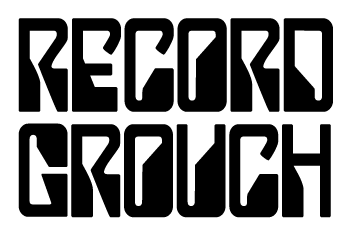 Image 1 of 1
Image 1 of 1


A RECORD COULD BE YOUR WHOLE WORLD BOOK: Vinyl Records as the Total Artwork of the Late Twentieth Century, Editors, Bruce Russell and Luke Wood (Ilam Press)
“[S]tarting from considering the provocative assertion that ‘the vinyl record was the gesamtkunstwerk of the late twentieth century.’ […] Crucially this concept of ‘cultural totality’ had its origins in the German Romantic movement of the early twentieth century, and as such it is conceptually foundational to Modernism in the following century.”
A very wide ranging art book/collection of essays/meditations on albums as both an art form and as a cultural incubator, this text involves many writers and voices. Some take a personal approach. Others look to culture and history. Bruce Russell cites Bill Orcutt early in his introduction making a point that albums as a format already have become historicized. Orcutt points to his son, who at the time was “nine, and he’s way into video games. And he wants to become somebody who makes them. For my generation, that’s what records were: you put on a record and it was a whole world, and you wanted to become the person who made that world.” Here Orcutt articulates the “totality” referenced in the book’s subtitle.
From our retail side when we opened here in Greenpoint a noted scholar of books and materialist culture commented that the etymology of the word “album” derives from the early 17th century: neuter of albus ‘white’ used as a noun meaning ‘a blank tablet’. And then taken taken into English from the German use of the Latin phrase ‘album amicorum’ or ‘album of friends’ (a blank book in which autographs, drawings, poems, etc. were collected). We’ve long been thinking of albums as books, places where language, memories, drawings and other art forms gather and gain meaning.
The book’s one-sheet describes this project’s aim as “records considered ‘in themselves’. It is not about musicians, or music, or design, or music history — though all those things are considered at various points. This book tries to cast light on the unique role played by records in western culture in the late twentieth century.”
“[S]tarting from considering the provocative assertion that ‘the vinyl record was the gesamtkunstwerk of the late twentieth century.’ […] Crucially this concept of ‘cultural totality’ had its origins in the German Romantic movement of the early twentieth century, and as such it is conceptually foundational to Modernism in the following century.”
A very wide ranging art book/collection of essays/meditations on albums as both an art form and as a cultural incubator, this text involves many writers and voices. Some take a personal approach. Others look to culture and history. Bruce Russell cites Bill Orcutt early in his introduction making a point that albums as a format already have become historicized. Orcutt points to his son, who at the time was “nine, and he’s way into video games. And he wants to become somebody who makes them. For my generation, that’s what records were: you put on a record and it was a whole world, and you wanted to become the person who made that world.” Here Orcutt articulates the “totality” referenced in the book’s subtitle.
From our retail side when we opened here in Greenpoint a noted scholar of books and materialist culture commented that the etymology of the word “album” derives from the early 17th century: neuter of albus ‘white’ used as a noun meaning ‘a blank tablet’. And then taken taken into English from the German use of the Latin phrase ‘album amicorum’ or ‘album of friends’ (a blank book in which autographs, drawings, poems, etc. were collected). We’ve long been thinking of albums as books, places where language, memories, drawings and other art forms gather and gain meaning.
The book’s one-sheet describes this project’s aim as “records considered ‘in themselves’. It is not about musicians, or music, or design, or music history — though all those things are considered at various points. This book tries to cast light on the unique role played by records in western culture in the late twentieth century.”
